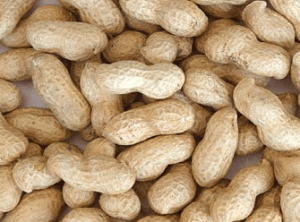CSIR-SARI tests new groundnut genotypes for savanna zone
 The Council for Scientific and Industrial Research-Savanna Agriculture Research Institute (CSIR-SARI) is currently testing several varieties of drought resistant and oleate groundnut genotypes for cultivation in the savannah ecological zone.
The Council for Scientific and Industrial Research-Savanna Agriculture Research Institute (CSIR-SARI) is currently testing several varieties of drought resistant and oleate groundnut genotypes for cultivation in the savannah ecological zone.
The new groundnut varieties which included ICGV07273, ICGV07270, ICGV15003 and ICGV15008 would be of high yielding quality and pest resistant.
It is expected to be more viable for cultivation in the savanna zone as compared to the existing varieties.
An Entomologist at the CSIR-SARI, Dr Jerry Nboyine, revealed this during a field visit to some maize and groundnut trial fields in Bamahu in the Wa Municipality and Tanina in the Wa West District.
He noted that the existing groundnut varieties were susceptible to drought and pest infestation, which affected yields badly.
More than 60 farmers from Wa Municipal and Wa West District as well as some staff of the CSIR-SARI visited the trial fields – initiatives of CSIR-SARI with financial support from AGRA and CABI to run a number of tests including varieties of groundnuts, mechanisms for fighting fall army worm, cowpea inoculants among others.
Dr Nboyine explained that prolonged drought as a result of climate change predisposed groundnut plants to aphid, which makes it vulnerable to groundnut rosette diseases.
“This hampers groundnut yields hence the need for improved seeds for better yields,’ he added.
He also identified leaf spot disease as common in groundnuts and said that it reduced photosynthesis, which was the source of energy for groundnut to yield, and that the new varieties were resistant to the disease.
He also indicated that the new groundnut varieties, if released to farmers for cultivation, would benefit both farmers and consumers as the cholesterol level is low, and dismissed any health challenge that might pose to the consuming public.
An Agronomist at the CSIR-SARI, Dr George Y. Mahama urged farmers to take their farming seriously and follow the appropriate steps in activities such as application of fertilizers and spraying to ensure they derived full benefits.
He added that farmers should also consider intercropping – a recommendation of the Food and Agriculture Organisation (FAO) – as a natural mechanism to control Fall Army Worm (FAW) in Africa.
According to him, intercropping could also serve dual purpose of improving soil fertility and offering farmers the opportunity to maximize limited land resources.
Dr. Iddrisu Yahaya, an Economist at the CSIR-SARI, urged farmers to consider the cost-effective method of fighting the FAW such as the neem oil tested not to have any health risk to the public.
He said farmers should not only consider controlling FAW but also take into consideration the cost involved in the use of a particular method in order to derive the maximum benefit from their farming activities.
Some other methods which were on trial at the field included the use of soap solution, sand and ash as well as intercropping.
Source: GNA
